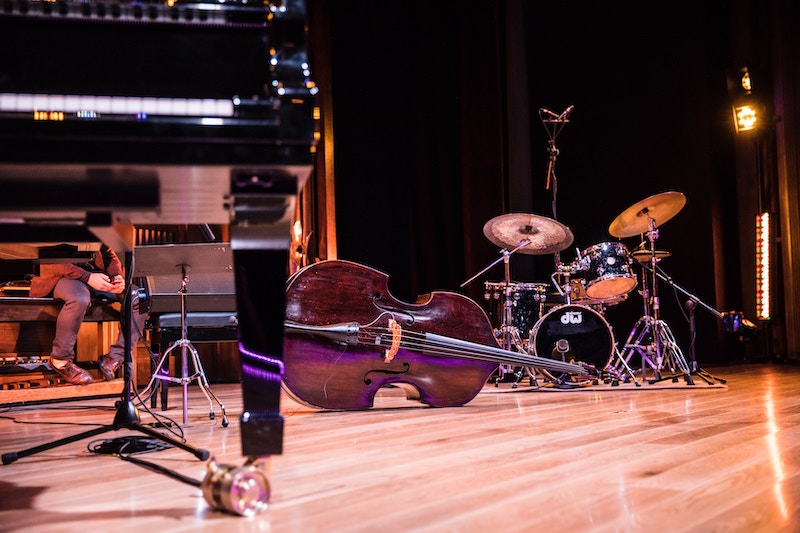Over my thirty years in ministry, the mention of APEST in the book of Ephesians has inspired so many thoughts and ideas. Putting these ideas into practice has built a lifetime of experience seeing these gifts bring renewed life into the expression of the Church.
I came from a background where I was taught that the five-fold gifts are given by Jesus to specific individuals who were the “called” ones of the Church. These were the men who were paid to influence the rest of the Church to do the work. While women were included further down the timeline, the teaching at the time was geared toward those already in full-time ministry, so the inclusion of women in ministry, honestly, wasn’t preached on a lot.
Thanks to Alan Hirsch and his writing, what we see coming to the forefront is a much better understanding of how to fully embrace the teaching of Paul in Ephesians 4. We see that Jesus gave all five gifts to the entire Church. In fact, it is even broader than that. He gave that DNA to all of humanity and the APEST DNA is expressed in a variety of combinations and measures.
In the past I have used Alan’s analogy of the symphony orchestra outlining the concept of each person playing the individual part along with others to create beautiful music.
The big challenge for me, however, has been how do these gifts work together on leadership teams and the collective whole.
As I explore the metaphor, I am led to this question: “What if we used a similar analogy of the APEST and could lead more like a Jazz band?”
If we watch Jazz being played, we recognize that music has been chosen, and we see individual musicians playing their individual instruments. Yet there are some unique differences with Jazz Bands.
Most Jazz Bands share in the lead and you often do not know who is actually leading the band. During the songs, the Guitar player may step up and have a more prominent role for a bit and a few minutes later the Bass player, then maybe the Saxophone player. In a sense, they are all leading, and they are all playing their parts as they play the music. They watch each other and play off one another instead of looking at sheet music. They are sensing and feeling the direction with the entire band. They nod at each other in a way that says, “I believe in you, go for it. They trust each other. They delight in watching others step out and play lead.
They are not playing their own song. They are playing the music that was written, yet they are encouraged to interpret it through their own gifting and personality, training and experience. They enjoy riffing off of one another, inspiring one another as they lead in synergy. They do not try to dominate the song; they just sense when to hand it off. The song that was written by the author is distinguished and recognized, yet their gifts make it a living musical piece. Their gifts make the music come alive to the listeners.
Jazz musicians can operate like family. They spend time together, knowing and intuiting each other’s hearts. With symphony orchestras, though, it might be possible for highly trained musicians to have the ability to show up with a group of strangers and play the music that the conductor has handed everyone. Typically, however, this would not be the case and improvisation is definitely frowned upon. Jazz players can meet for the first time and with no real practice, they can make music together. (No conductor necessary).
With a symphony orchestra, the music is written and practiced a great deal beforehand, and while there are soloists that stand out during the performance the musicians playing the specific, prepared solo piece must keep their eyes on the conductor and the sheet music. They are not allowed to depart from the notes that are written on the page.
Much of western Christianity certainly appears to operate in this manner.
We have the Conductor who takes the music that is precisely written and auditions their best performers to gather “his” team of which he will be the “leader.” He then conducts them on playing the song as he interprets the music to be played. If a musician was to depart from the agreed upon plan for performing the song as it is written, they might not be asked to participate in the future.
Let’s pretend we had a 5Q leadership team operating like a Jazz band. The Apostle starts playing lead, and gives a nod to the Shepherd, who then passed the lead to the Evangelist, who bounced back to the Apostle, then to the Prophet who handed it on to the Teacher. On and on it would go! We would see the body flourishing everyone feeling great and enjoying themselves.
Which leads me to another thought to add here:
When you watch a Jazz band, they look like they are having a blast. They are smiling, head- bobbing, and swaying with the music. It is organic in nature. It is very interactive. The crowd has a good time too. They enter in by swaying, foot tapping, and head bobbing along with the band. It’s a group event.
When you watch a symphony orchestra, it can seem a little stuffy. Quiet and structured. There is an audience of spectators. It is not always an interactive experience. It is definitely performance based.
When we go to see symphony orchestra, we may not perceive a sense of family and community. It does exist within the orchestral context; however it looks like there is one leader conducting the whole. Yes, the music is impactful and soulful but it practiced, less interactive and more presentation focused.
If 5Q leadership is going to be more effective, my recommendation would be that we operate more like a Jazz band. That we have fun like Jazz musicians; that we spend quality time, candidly sharing intimate time together playing our instruments, and riffing off one another, so at the end of the day people might not say “I love that Pastor.” but “I love that music.”
Most people will say, “Hey, have you heard that Jazz Band?”
In addition to teaching and inspiring these gifts we must help all leaders to live and play like the Jazz musicians they are.
Something that we all struggle with in both our church and cultural context is connection and appreciation of each other’s gifts. We struggle due to the fact that we do not listen well. As a whole, we need to develop an ear to hear what those around are saying. Improvisational humor is funny because the other person hearing has no idea what is going to be said, they must pay attention; this is a weakness I have had most of my life. I’m still working on it!
Generally, when people are conversing once one person is done talking, the other person begins the reloading process – readying their next comment. It is a gift and a mercy to really listen and hear what another person is saying. Remember, a person sharing with you is a powerful transaction. It’s a grace.
One of the ways we can experience the power of jazz is simply the way they listen in the moment. 5Q is like the jazz of the faith. It is dynamic, moving, vulnerable and all at once empowering.
We need more Jazz in the way we play the melodies and cadences of our love for Jesus. Our world is longing to be listened to, to be love and to be given space for their part in the 5Q song set.
How do you see jazz at work in the way you practice APEST? How do you help your people solo in the structure of the song?

